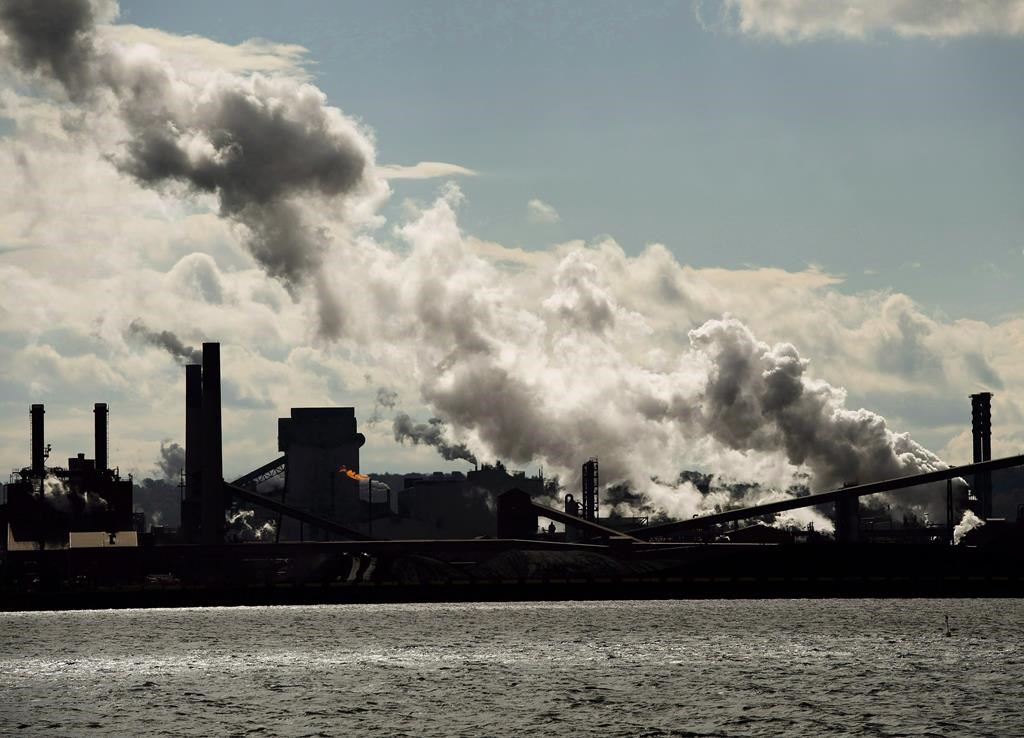Support strong Canadian climate journalism for 2025
The federal government's impending national carbon price could bring in more than $250 million in GST revenues next year but Ottawa doesn't intend to account for those funds in its rebate program.
A spokesman for Finance Canada says the government doesn't believe Ottawa will see a "significant rise" in its net GST take even though the GST will be charged on top of the carbon levy.
"Most consumers would have spent the related funds on other GST/HST taxable goods and services," said Jack Aubry in an emailed statement.
Businesses can offset any additional GST they pay on the carbon levy through existing input tax credits, Aubry said.
Individuals will pay the GST on top of any carbon price built into the cost of goods and services, either directly on fuels like gasoline or natural gas, or indirectly as businesses pass on their carbon levy costs to consumers.
A 2017 analysis by the Library of Parliament said that if the GST were charged on all of the revenues collected from existing carbon levies in British Columbia and Alberta it would add as much as $150 million in a year to Ottawa's coffers. That was based on those governments having a carbon tax of $30 a tonne. B.C. raised it to $35 a tonne in April, and will raise it to $40 next year.
The same analysis applied to the $20-a-tonne carbon levy Ottawa will impose on Saskatchewan, Manitoba, Ontario and New Brunswick next April suggests the GST take in those provinces could be as much as $118 million a year.
The revenues expected from the carbon price in the territories, Newfoundland and Labrador, Prince Edward Island and Nova Scotia are not yet available. They have all opted to either use the federal pricing system or will have a different solution with at least an equivalent carbon price.
The parliamentary researchers warned in their 2017 analysis that the final carbon-price related GST tally will depend on what costs are passed on to consumers from businesses. Also, some items, such as basic groceries and pharmaceuticals, are exempt from GST, so if the carbon levy raises their prices it won't lead to more sales-tax revenue.
Ottawa expects to raise $2.3 billion in 2019-20 from the carbon levy being imposed on the four provinces that don't have their own in place. Ninety per cent of that will be rebated to households when they file their taxes, with the other 10 per cent set aside to help businesses, schools and other non-profit groups that can't pass on all costs to consumers.
Aubry said it's not clear how much additional GST might be raised when people spend the carbon price rebates they will start getting next year.
The government has promised to make public audited statements on the revenues and rebates of the carbon price each year, and that the rebates will be adjusted if the revenues from the carbon price are different than predicted.
However Conservative MP Mark Warawa said the government is not being honest about the whole picture because it refuses to acknowledge the GST is being paid on top of the carbon price.
"For it to be revenue neutral it would have to be GST exempt," Warawa said.
Warawa introduced a private members bill last year to exempt the carbon price from the GST but it was defeated. Warawa said as it stands this a "tax on tax" scheme.





Comments
I’m no economist, but at face value, this is beginning to look like another ‘cash grab’ for the Federal Government with the consumers/citizens still paying the substantial portion of the tax/es. Businesses get to receive a tax credit (as I understand it, this means a reduction in the taxes they have to pay, whereas consumers still get to have a bit more money to buy stuff and pay GST again! The revenue numbers look pretty good for the feds. What exactly are they likely to use that NEW money for? A Universal Pharmacare ( that would actually reduce expenses for government), Universal Childcare? (making the lives of young families and their children less stressed, thus healthier) or, perhaps additional subsidies for the Tar Sands Industry or paying for our new, but very old, TMX pipeline?
For an excellent global economic analysis of cap and trade, carbon tax and a tax AT THE SOURCE, see Alldyen Donnelly’s “Why carbon pricing hasn’t worked so far” a podcast on Nori.